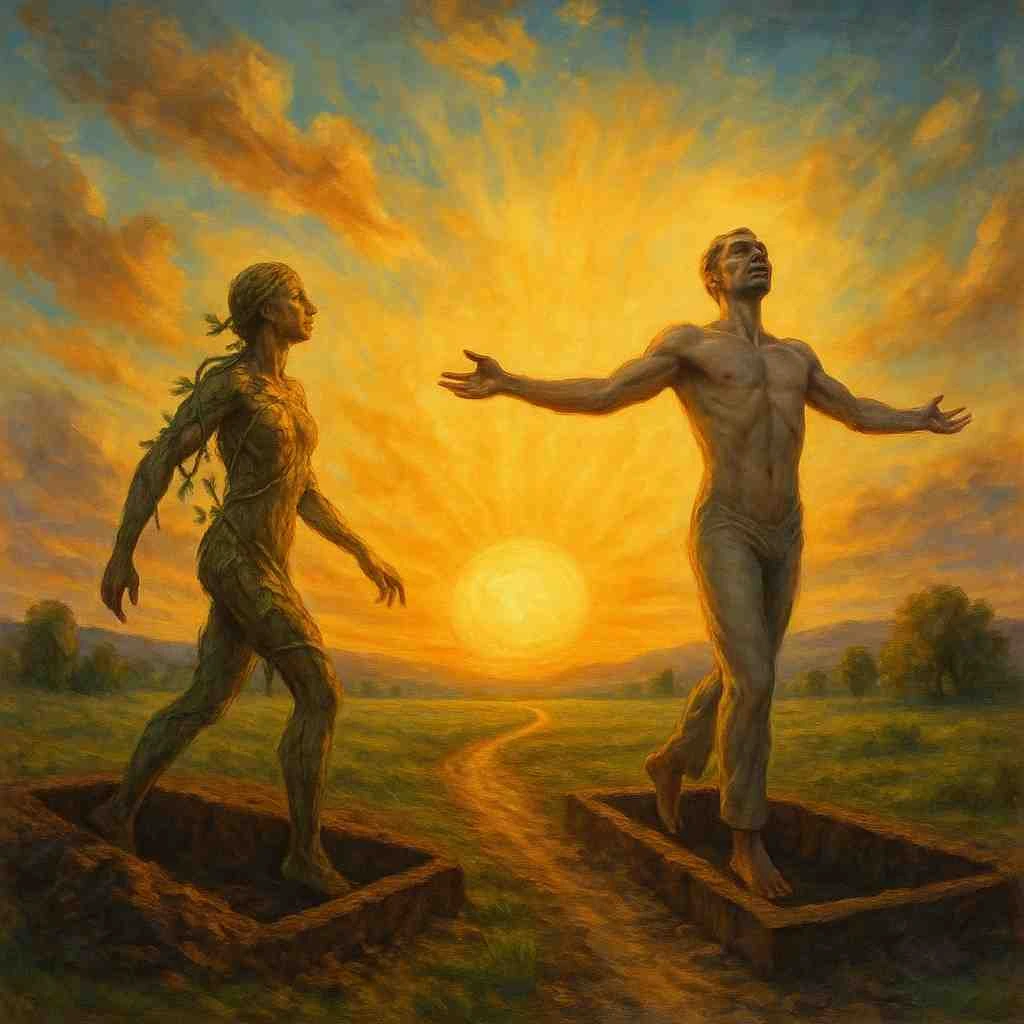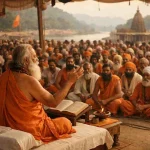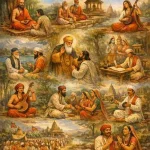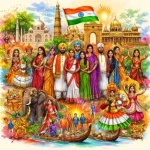Rebirth and Resurrection: Different Roads to Eternal Life
The question of what happens after death has intrigued humankind since the dawn of consciousness. Across civilizations, people have sought comfort in the belief that life does not simply end — it transforms. Among the many interpretations of life after death, two powerful ideas stand out: reincarnation and resurrection. While reincarnation suggests that the soul takes new forms across different lifetimes, resurrection speaks of the soul’s return to life in its original body, transformed by divine power. Both represent humanity’s deep longing for immortality — the desire that existence continues beyond the grave.
The Human Desire for Immortality
Every culture, in some form, expresses hope that death is not the final chapter. This yearning for immortality is not just about escaping death, but about finding purpose and moral direction in life. The ideas of reincarnation and resurrection serve this spiritual function — giving meaning to our actions and offering faith in a continued existence.
Both beliefs, though different in interpretation, reflect the same inner truth: that the human spirit is indestructible. Whether through endless cycles of rebirth or through divine restoration at the end of time, people across ages have trusted that life somehow continues beyond the physical body.
Reincarnation: The Cycle of Many Lives
Reincarnation, or rebirth, is central to several Eastern religions such as Hinduism, Buddhism, Jainism, and Sikhism. It teaches that the soul (atman) is eternal and migrates from one body to another based on the law of karma — the moral record of one’s actions. Good deeds bring favorable rebirths, while negative deeds result in suffering until balance is restored.
In Hinduism, the ultimate goal is not endless rebirth but moksha — liberation from the cycle of life and death. The soul achieves this through spiritual awakening and detachment from material desires. Buddhism holds a similar view but focuses on the cessation of suffering (nirvana) by overcoming ignorance and craving. Jainism adds a strong ethical dimension, emphasizing non-violence and truth as keys to freeing the soul from karmic bondage.
In these faiths, reincarnation serves as a moral compass. Every thought, word, and deed has a consequence that shapes the next life. The belief encourages mindfulness, compassion, and responsibility toward others, as one’s future existence is tied to present behavior.
Resurrection: One Life, Eternal Reward
Resurrection, by contrast, is a cornerstone of the Abrahamic religions — Judaism, Christianity, and Islam. It emphasizes the idea that human life is lived once, followed by divine judgment. The body, after death, will be raised again at the end of time through the power of God, and the soul will reunite with it for eternal life.
In Christianity, the resurrection of Jesus Christ is the central event symbolizing victory over death. It promises believers that they too will rise from the dead to live eternally in God’s presence. Islam also teaches a detailed account of resurrection (Qiyamah), where all souls are judged according to their deeds and rewarded with paradise or punished in hell. Judaism, while having varied interpretations, includes belief in a “world to come” where the righteous will be restored.
Unlike reincarnation, resurrection focuses on moral accountability within a single lifetime. It emphasizes faith, obedience, and divine mercy rather than the continuous evolution of the soul through multiple births.
Shared Spiritual Meanings
Despite their differences, both doctrines share a profound purpose — to affirm that life has meaning beyond physical existence. Reincarnation sees immortality as a continuous journey of learning and purification, while resurrection presents it as a final transformation into divine perfection. Both guide humans toward righteousness, compassion, and hope.
They also speak to different dimensions of human psychology. Reincarnation comforts those who see life’s unfairness — explaining suffering as part of a larger cycle of justice. Resurrection, on the other hand, offers the assurance of divine order — that even in the face of death, God restores what is lost.
Interestingly, modern spirituality often blends the two ideas. Many people today see reincarnation metaphorically — as a symbol of personal growth and renewal — while viewing resurrection as an inner awakening rather than a physical event. Both perspectives suggest that immortality may not just mean endless life, but the eternal continuity of consciousness and love.
Rebirth in Modern Thought
In today’s world, scientific curiosity has also touched on these ancient ideas. Accounts of near-death experiences, past-life memories, and consciousness studies keep the debate alive. While science has yet to prove either concept, it acknowledges that human awareness and moral consciousness might extend beyond the limits of the body. This modern curiosity reflects an ancient truth — that people are not only afraid of death but deeply curious about what lies beyond it. In that curiosity lies the foundation of faith itself. Reincarnation and resurrection may seem like two opposing beliefs, but both illuminate humanity’s timeless search for continuity, justice, and divine connection. One envisions an eternal cycle of growth, the other a moment of divine renewal — yet both offer hope that death is not an end but a passage.
Ultimately, whether we are reborn many times or raised once in eternity, the message remains the same: live with purpose, kindness, and awareness. For in living rightly, we touch the essence of immortality — not in the future, but here and now.
~Religion World Bureau










